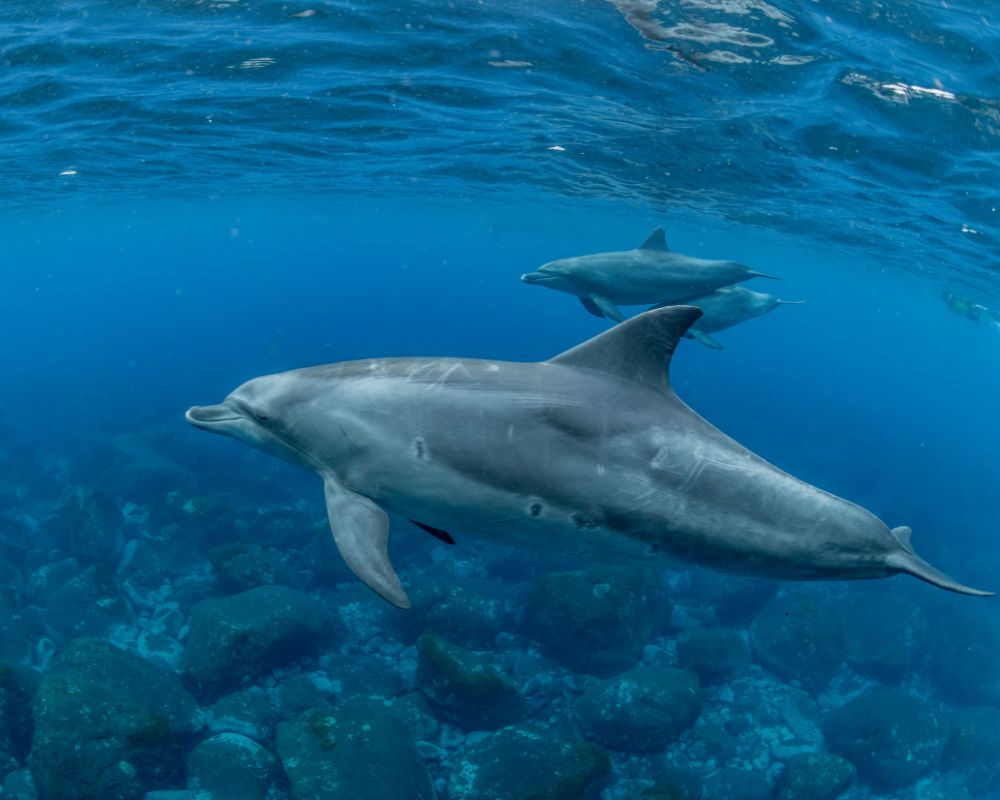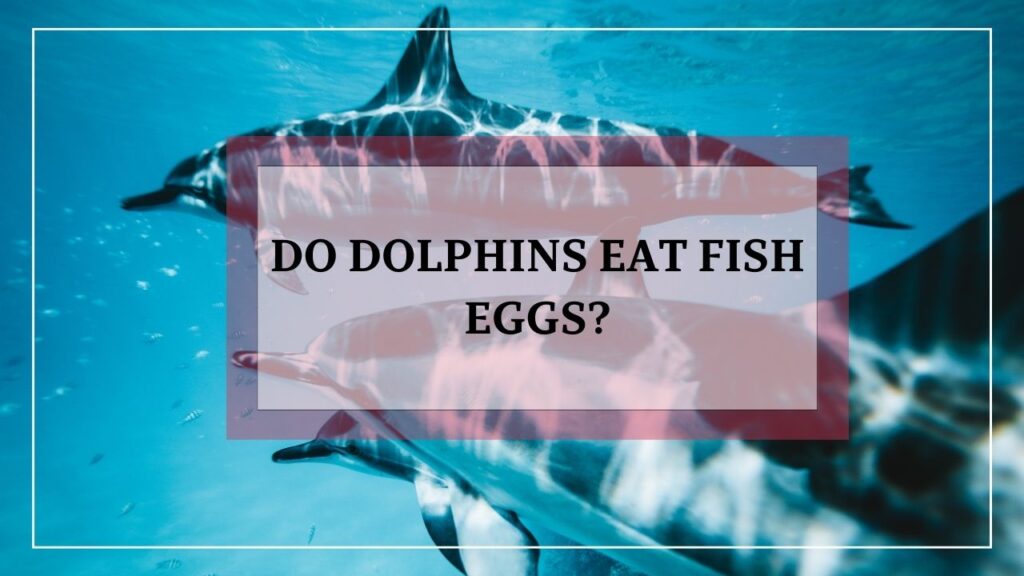Today, we’re going to dive into a question that many people have asked me: Do dolphins eat fish eggs? It’s a curious question that has piqued my interest, and I’m excited to share what I’ve learned.
Dolphins, in particular, have always intrigued me with their intelligence and adaptability. They are opportunistic feeders that consume a wide variety of prey, but what about fish eggs? Do they fit into their diet?
In this post, we’ll explore the evidence of dolphins consuming fish eggs and the reasons why they might eat them. So, grab a cup of coffee, sit back, and let’s dive in!
Do Dolphins Eat Fish Eggs?

Yes, dolphins have been observed consuming fish eggs in the wild. While not all dolphin populations consume fish eggs, studies have shown that some species, such as the common dolphin and bottlenose dolphin, have a diverse diet that includes fish eggs as well as other prey like cephalopods, crustaceans, and birds.
Consuming fish eggs may provide dolphins with essential nutrients and energy, particularly during times of low food availability, and may also allow them to take advantage of the seasonal abundance of prey.
Reasons Why Dolphins Might Eat Fish Eggs
There are several reasons why dolphins might eat fish eggs. Let’s explore some of them:
- High-energy food source: Fish eggs are rich in energy and nutrients, making them an excellent food source for dolphins. As marine mammals, dolphins need a lot of energy to survive and thrive in their aquatic environment. Consuming fish eggs can help provide the necessary nutrients and energy for their daily activities.
- Seasonal abundance: Fish eggs are often found in large quantities during spawning season, which can provide an abundance of prey for dolphins. Taking advantage of this seasonal availability can be crucial for their survival, especially during times of low food availability.
- Opportunistic feeding behavior: Dolphins are opportunistic feeders, meaning they will consume whatever prey is available to them. If fish eggs are present and easily accessible, dolphins may consume them as part of their diet.
- Cultural transmission: Some studies have suggested that certain dolphin populations may learn to consume fish eggs from their mothers or other members of their social group. This cultural transmission can lead to the development of a specialized diet that includes fish eggs.
How Dolphins Locate And Consume Fish Eggs?
When it comes to locating and consuming fish eggs, dolphins have some unique abilities and behaviors. Here’s how they do it:
- Echolocation: Dolphins use echolocation to locate prey, including fish eggs. This involves emitting clicks or other sounds that bounce off objects in the environment and return to the dolphin as echoes. By interpreting the echoes, dolphins can create a mental map of their surroundings and locate prey, including fish eggs.
- Visual cues: In addition to echolocation, dolphins may also use visual cues to locate fish eggs. Fish eggs are often translucent and visible in the water, so dolphins with good eyesight may be able to spot them as they swim.
- Suction feeding: When consuming fish eggs, dolphins may use a suction feeding technique.
This involves creating a vacuum in their mouths and sucking up the eggs, along with any surrounding water. This can be an effective way to consume large quantities of eggs at once.
- Swallowing whole: Depending on the size of the fish eggs, dolphins may be able to swallow them whole.
This can be a quick and efficient way to consume a lot of eggs, especially if they are small.
- Sharing with others: Dolphins are social animals, and some populations have been observed sharing food with one another, including fish eggs. This cooperative behavior may help ensure that all members of the group have access to enough food.
The Impact Of Eating Fish Eggs On Dolphin Populations
While it’s clear that dolphins do eat fish eggs, the impact of this behavior on dolphin populations is not entirely clear. Here are a few things to consider:
Nutritional value: Fish eggs are a rich source of nutrients, including protein, fats, and minerals. Dolphins that consume them, may provide important nutritional benefits.[1]
Competition with other predators: Dolphins are not the only animals that eat fish eggs. Other predators, including birds and fish, also consume them. If there is competition for this food source, it could impact dolphin populations.
Potential for overconsumption: If dolphins rely too heavily on fish eggs as a food source, it could lead to overconsumption and a decline in the availability of eggs. This could have ripple effects throughout the food web, impacting other species that rely on fish eggs.
Impact on individual dolphins: Eating fish eggs may have both positive and negative impacts on individual dolphins. On the one hand, it could provide important nutrition. On the other hand, if eggs are contaminated with toxins or pollutants, consuming them could be harmful.
Overall, the impact of eating fish eggs on dolphin populations is likely complex and multifaceted. While this behavior is a natural part of their diet, it’s important to consider the potential impacts on both individual dolphins and the broader ecosystem. Ongoing research is needed to fully understand these dynamics.

